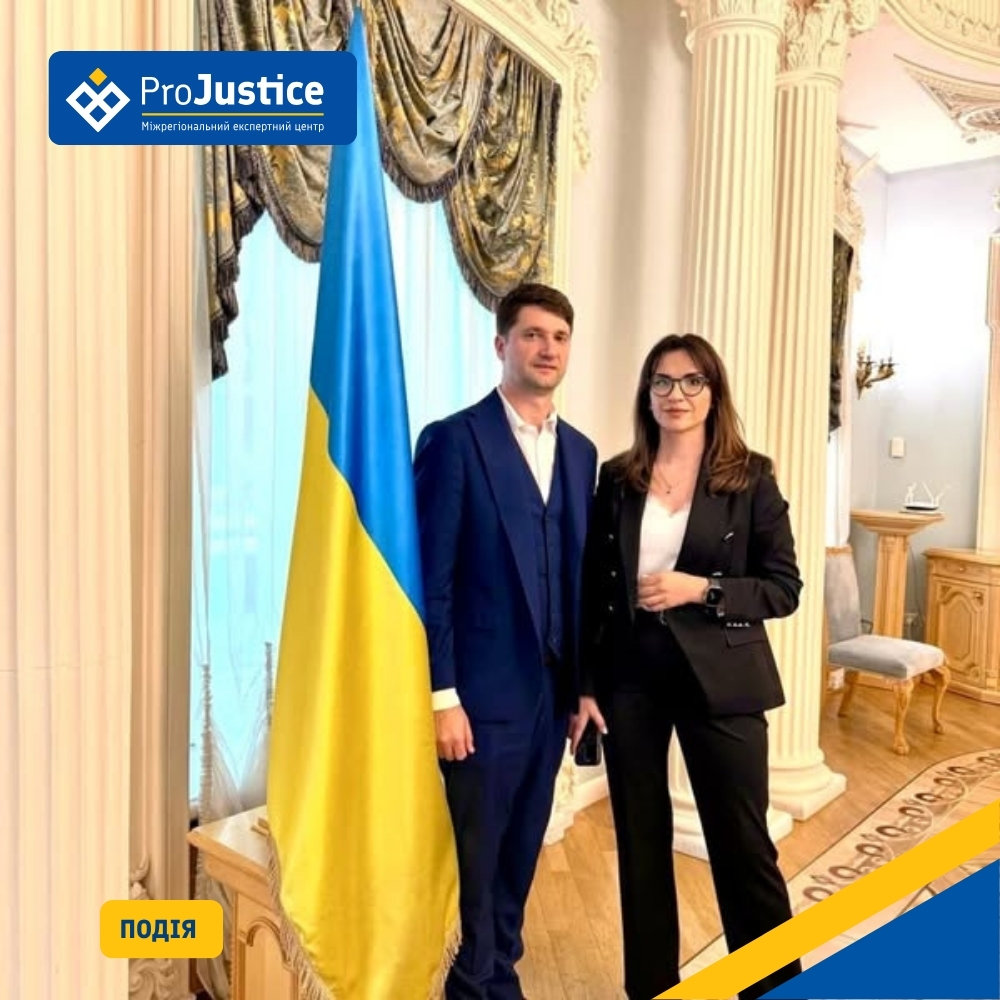ON NOVEMBER 23-24, THE EU PROJECT “PRAVO-JUSTICE” TOGETHER WITH THE DNIPROPETROVS’K REGIONAL COUNCIL FOR JUSTICE REFORM (RJRC) CONDUCTED A TRAINING ON THE BASICS OF MEDIATION FOR JUDGES AND STAFF OF THE DNIPROPETROVS’K DISTRICT ADMINISTRATIVE COURT.
THE FOCUS WAS ON THE BASIC PRINCIPLES OF MEDIATION, PRACTICAL ASPECTS AND A MEMO TO INFORM CITIZENS AT THE STAGE OF APPLYING TO COURT AND COURT PROCEEDINGS.
“The adoption of the Law on Mediation on November 16, 2021, has led to the need for mediation training for representatives of various legal professions, including judges.
This concerns their acquisition of general knowledge about mediation, sufficient and necessary for the qualified proposal and informing the parties to the conflict about mediation.
Such training will help judges better understand the essence of the procedure, its advantages and effectiveness.” – said Oksana Tsymbrivska, Chief National Expert of the EU Law-Justice Project, Justice Sector Policy and Coordination Component. The event was a continuation of the in-depth analysis of legislative and institutional gaps in the implementation of mediation in Ukraine in various areas of law conducted in 2020.
In 2021, the Project conducted a study to identify the categories of administrative cases where mediation is potentially possible, as well as to determine the mechanisms for referring such cases to mediation.
For this purpose, individual interviews with stakeholders were conducted, as well as group discussions with administrative court judges within the framework of the RRRP.
Based on the results, the report “Mediation in Administrative Cases” was presented. “Of course, the law on mediation gives a new impetus to the development of alternative dispute resolution methods. Disputes in the field of administrative proceedings are the most controversial area of mediation, but at the same time they are one of the most strategic. This is a real chance for public authorities to increase their credibility and public trust by focusing on partnership rather than control,” emphasized Alina Sergeyeva, internationally certified mediator, national expert of the EU Pravo-Justice Project.
It was not a coincidence that the training was held at the Dnipro District Administrative Court.
After the presentation of the report “Mediation in Administrative Cases” in July 2021, the court proposed to open a court mediation center and introduce a model of judicial mediation as part of a pilot project to promote alternative ways of resolving disputes in the field of administrative justice.
Before launching the process, it is important that all judges and court staff have the same understanding of what mediation is, what its principles are, and that they can effectively advise citizens on the possibility of using alternative dispute resolution. “Until recently, there was a lot of skepticism in the legal community about the possibilities of alternative dispute resolution. With the adoption of the laws “On Mediation” and “On Administrative Procedure”, the possibility of mediation arises even in administrative disputes.
After all, the new laws establish a new principle of government agency activity – to act effectively.
The training conducted at the Dnipro District Administrative Court by the EU Project “Pravo-Justice” is the first stage of launching a pilot project to introduce mediation in administrative disputes and provides basic knowledge of the principles and basics of mediation.” – emphasized Andriy Ryshchenko, judge of the Dnipro District Administrative Court, coordinator of the Dnipro RRDC.For reference:Regional Justice Reform Councils (RJRCs) were established with the support ofthe EU Pravo-Justice Project and operate in Chernivtsi, Dnipro, Kharkiv, Lviv, Odesa oblasts and Donbas. To date, members of the Councils have been actively involved in the preparation of a draft law on mediation, amendments to the Bankruptcy Code, proposals to improve legislation on enforcement proceedings, the introduction of an electronic court, and discussions on the concept of transitional justice. The RECs act as permanent working groups that promote the implementation of reforms in accordance with the bottom-up principle: by bringing region-specific challenges and their potential solutions to the level of central authorities.


